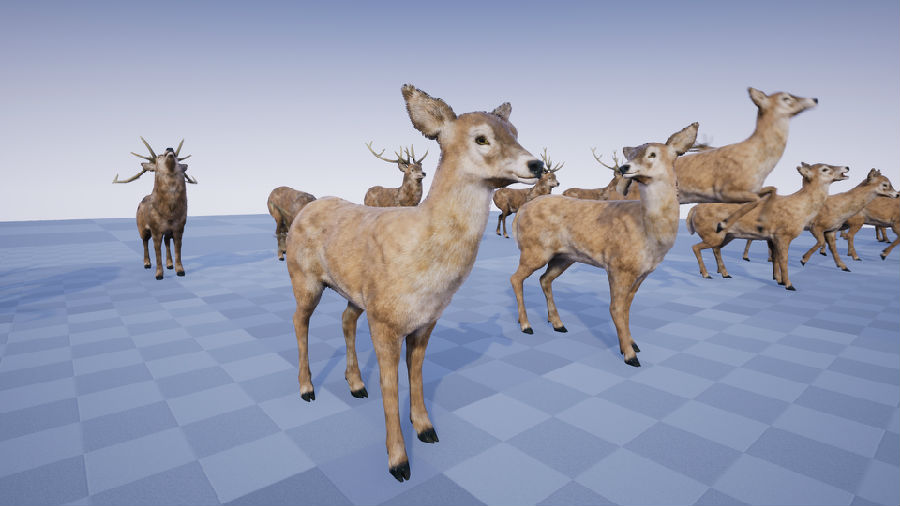(单词翻译:单击)
听力文本
Now, the VOA Learning English program Words and Their Stories.
Like many languages, English uses animals in many of its expressions. And there are thousands of kinds of animals. So, when we talk about them, we put them into different groups.
Take, for example, pack animals.
One kind is an animal used to carry packs, or heavy loads. Donkeys and mules are pack animals. We sometimes call these animals beasts of burden because they help to ease the burden of humans.
Another type of pack animals are the ones that live and hunt in a group, or pack. These include grey wolves and dolphins, just to name a couple.
Running with a pack has many benefits. When animals live in a pack, they work together. There is strength (and safety) in numbers. If you run with a pack, you can depend on others in your group. And there is always someone who has your back, or is ready to fight for you.
We can describe people the same way.
Some like to run with a pack. They like to surround themselves with like-minded people. People can run with a pack that likes the same music, has the same politics or enjoys the same activities.
It is easy to hang out with people who generally agree with you. It is comfortable -- maybe a little too comfortable.
This can lead to a pack mentality, a situation where everyone thinks the same. After time you could become resistant to ever disagreeing, fearful of losing your place in the pack.
We also call this groupthink. This is a situation where members of a group feel pressure to always agree. Groupthink results in failures to think critically about an issue, situation or decision.
Groupthink or pack mentality can even be dangerous.
People caught up in a pack mentality do not think for themselves and can make bad decisions. For example, teenagers might start hanging with other teens who do drugs or commit crimes. So, parents often try to control which pack their child runs with.

With both animals and people, there is usually a leader of the pack.
In our human pack, the leader is the one who calls the shots. They make the decisions for the group.
Some people, however, have no desire to run with a pack. They might be ahead of the pack and are more forward thinking. They do not want to go along with what everyone else is doing. Maybe they are just faster! Or perhaps they simply enjoy the life of a lone wolf.
As a lone wolf you solve problems by yourself. You do not ask for help when making decisions. You are free from pleasing a group. However, you might not have many friends. After all, everything has a cost.
Now, we finish our show with yet another type of pack animal – the pack rat.
This is a small rodent of western North America. Pack rats have large cheek pouches, where they store food and other things. These pouches can fill up fast!
In the human world, pack rats are people who keep things that they do not need. They store them, not in their cheeks, but in their homes, garages and other storage places. A pack rat often says things like, "I can't throw it out. I might it need it someday."
When pack rats collect too much stuff and it interferes with their life -- they have become a hoarder. Hoarders have a difficult time throwing anything away. So, they usually find themselves surrounded by stuff, sometimes even buried under it!
However, sometimes it pays to be a pack rat or at least to know one. One day you just may need something they have collected – a 40-year-old newspaper, a bicycle wheel, or a cow bell. One look in a pack rat's basement or garage and you just might find what you need!
And that's Words and Their Stories. I'm Bryan Lynn. And I'm Anna Matteo.
重点解析
1.be ready to 准备好;准备做某事
You must be ready to leave at a moment's notice.
你必须随时准备出发。
2.resistant to 耐……的;抵抗的
Some people are very resistant to the idea of exercise.
有些人十分反对锻炼。
3.interfere with 妨碍;干扰
I try not to let work interfere with my personal life.
我尽量不让工作干扰我的私生活。
参考译文
欢迎收听VOA慢速英语《词汇掌故》。
英语像许多语言一样,很多表达方式都使用动物,动物有成千上万种。所以,当我们谈论它们时,会把它们分成不同的组。
例如,pack animals(驮畜)。
这是一种可以用来运送行李或重物的动物,驴和骡子是驮畜。我们有时称这些动物为役畜,因为它们帮助减轻人类的负担。
另一种pack animals是指一起生活和狩猎的群居动物,包括灰狼和海豚等。
和群落生活在一起有很多好处。当动物群居时,它们一起劳作,数量多力量大,也安全。如果和群落在一起,就可以依靠团队中的其他个体。总有个体会支持你,或者准备好帮你作战。
我们可以用同样的方式来描述人。
有些人喜欢待在群体中,他们喜欢和志同道合的人在一起。人们可以和喜欢同样音乐、有着相同政治观点或喜欢同样活动的一群人生活。
与同你观点一致的人在一起相处很轻松,也舒服,也许会太舒服。
这会导致一种群体心理,一种每个人都有相同想法的情况。久而久之,你可能会对任何不同意产生抵触情绪,害怕失去你在群体中的地位。
我们也称之为群体思维。这种情况下,团队成员会感到压力,这种压力要求他们始终保持一致。群体思维会导致对一个问题、一种情况或决定缺乏批判性的思考。
群体思维甚至是危险的。
陷入群体心理的人不会独立思考,可能会做出错误的决定。例如,青少年可能开始和其他吸毒或犯罪的青少年混在一起。所以,父母经常试图控制与孩子一起相处的同伴。
无论是动物还是人,通常都有一个领头羊。
他们告诉我他很坏,但我知道他是伤心。
这就是为什么我喜欢上了头头。
在人类的群体中,领导者是说了算的人,他们为团队做决定。
然而,有些人不喜欢混在群体中,他们可能走在群体之前,思维更具前瞻性。他们不想和其他人一起做事,也许他们只是速度更快!或者他们只是享受单枪匹马的生活。
作为独行侠,你自己解决问题,做决定时不需要帮助,不必取悦一群人。但是,你可能没有很多朋友。毕竟,一切都有代价。
现在,我们用另一种pack animal——驮鼠,来结束节目。
这是北美洲西部的一种小型啮齿动物。驮鼠有硕大的腮囊,它们把食物和其他东西储存在那儿,腮囊很快就会被塞满!
在人类世界里,驮鼠指那些保存不需要东西的人。他们不是把这些东西塞进脸颊里,而是放在家中、车库和其他储藏处。“一只驮鼠”经常用来描述:“我不能把它扔了,总有一天我会需要它。”
驮鼠们收集了太多的东西,这会干扰他们的生活,让他们就成了囤积者。囤积者很难扔掉任何东西。所以,他们通常会发现自己周围是各种物品,有时甚至会被埋在下面!
然而,有时候做驮鼠或至少认识一个这样的人是值得的。有一天,你可能会需要他们收集的东西——一份40年前的报纸、一个自行车轮子或一个牛铃。你只要在驮鼠的地下室或车库里瞄一眼,就可能发现自己需要的东西!
这就是今天的节目,由布莱恩·林恩和安娜·马特奥讲述。


